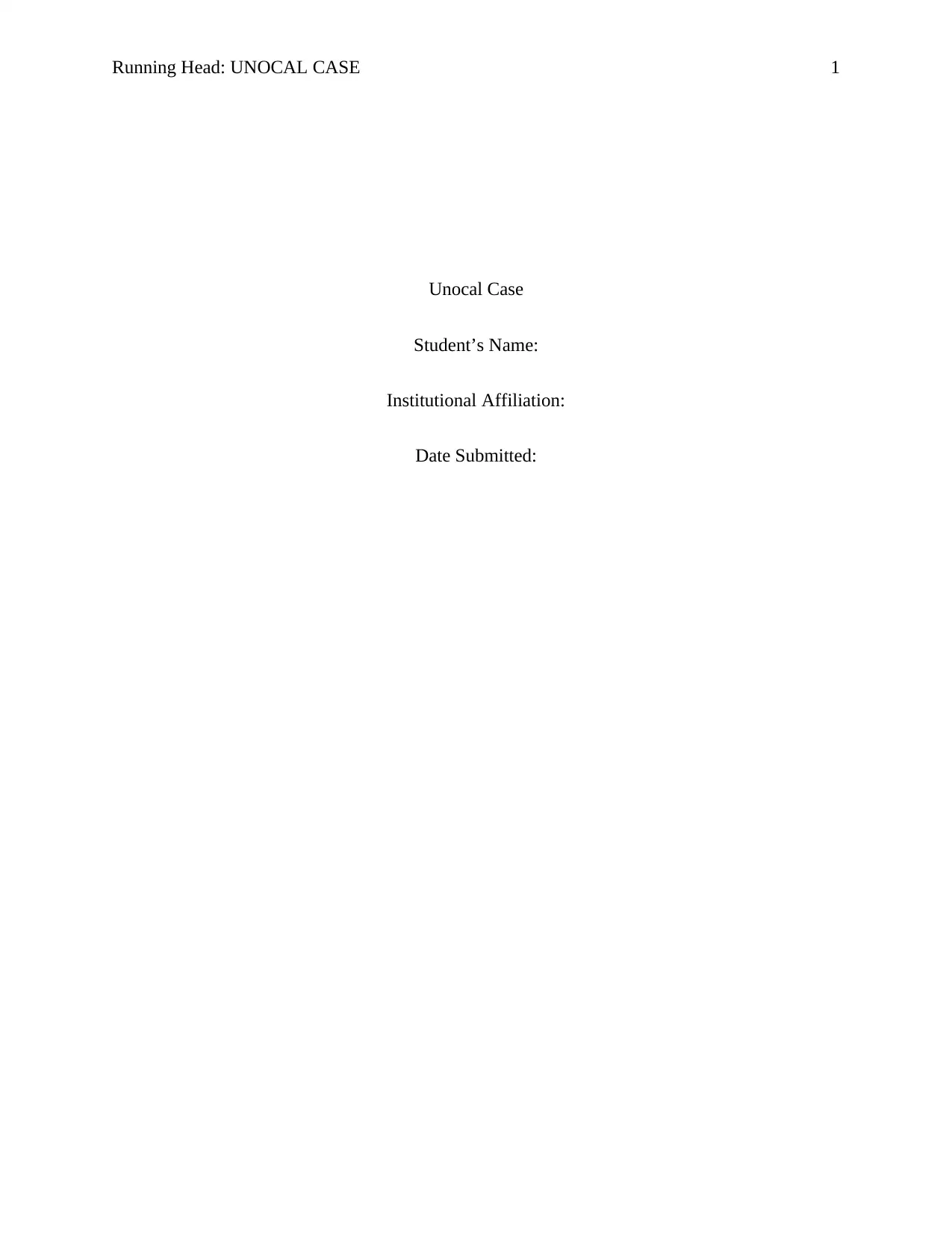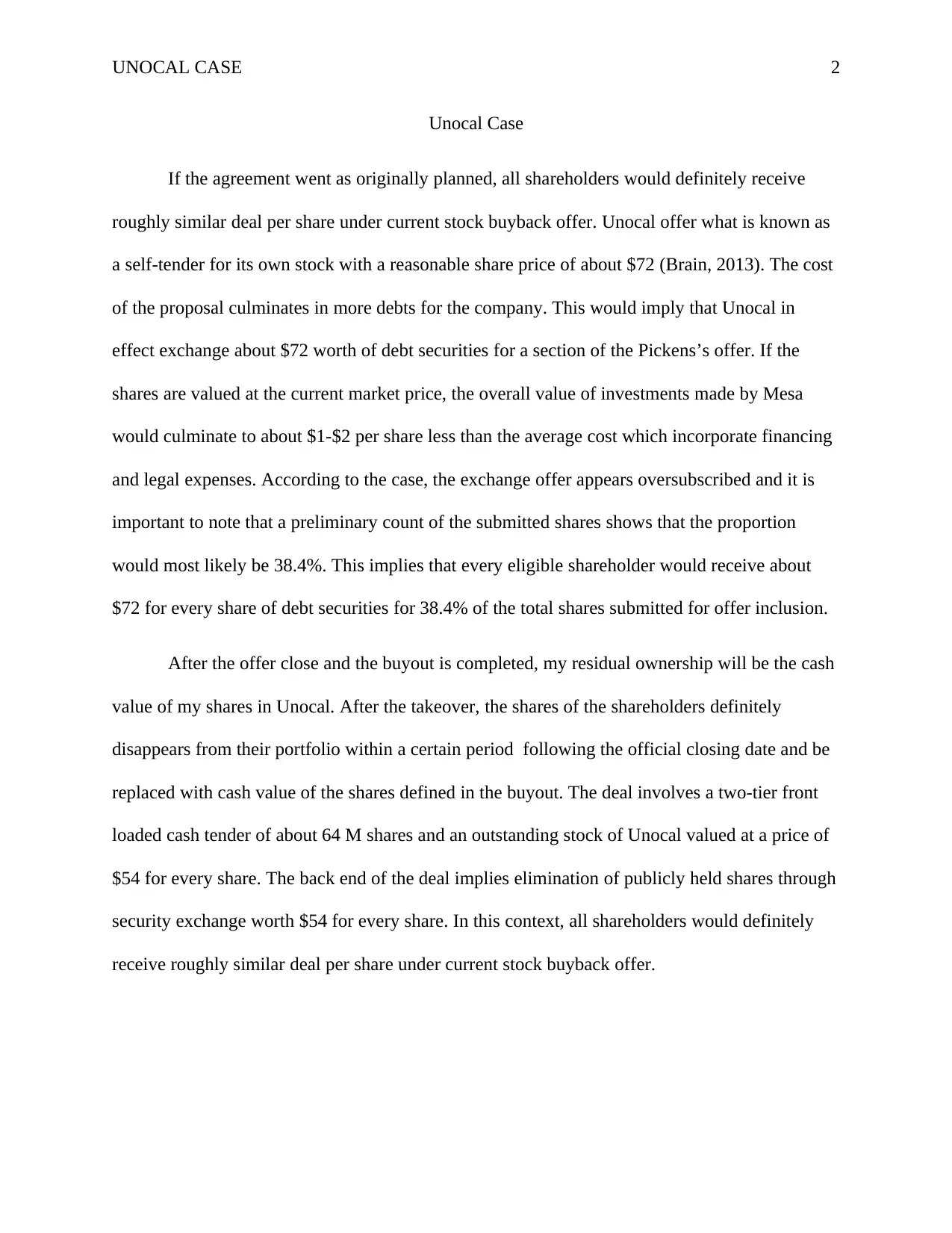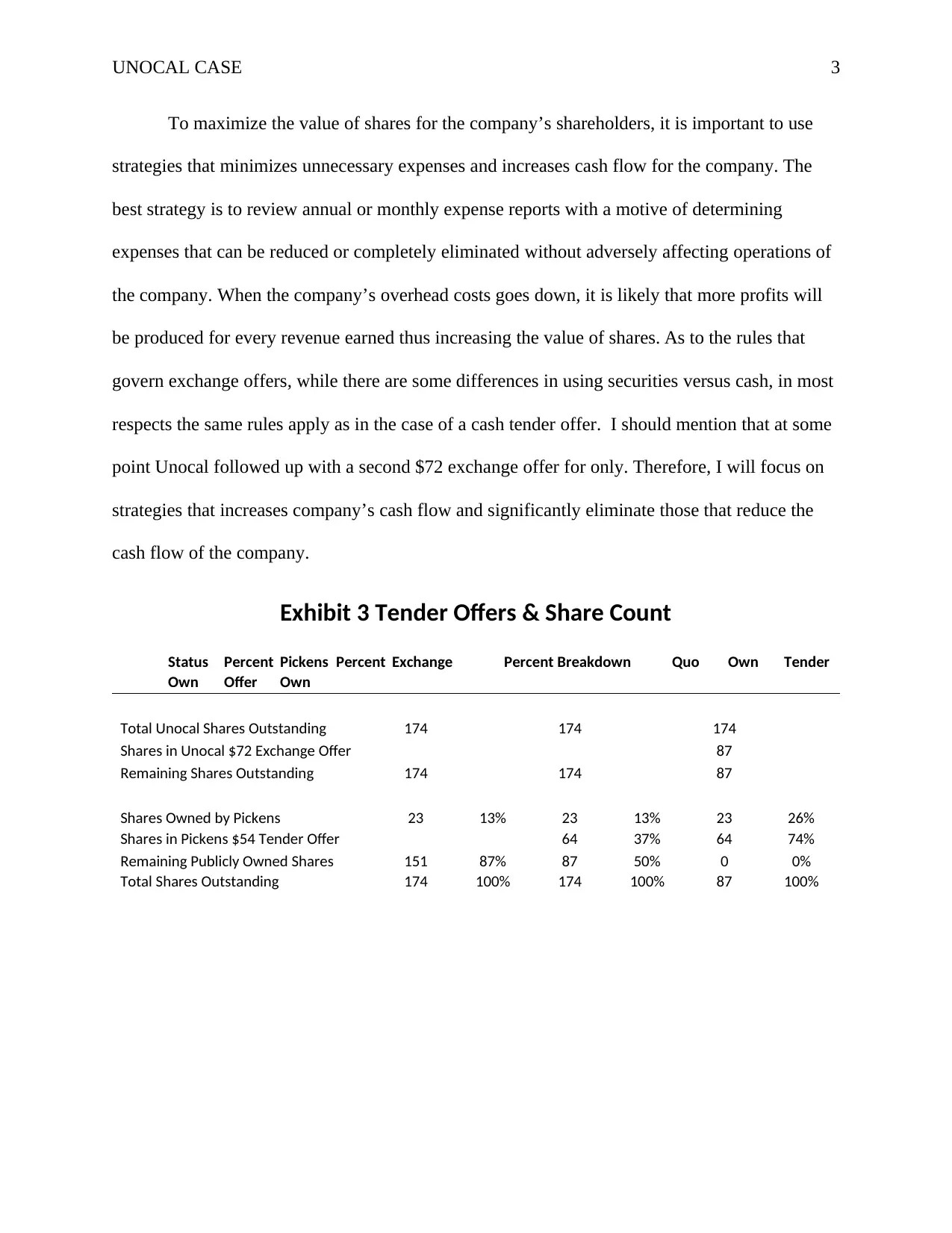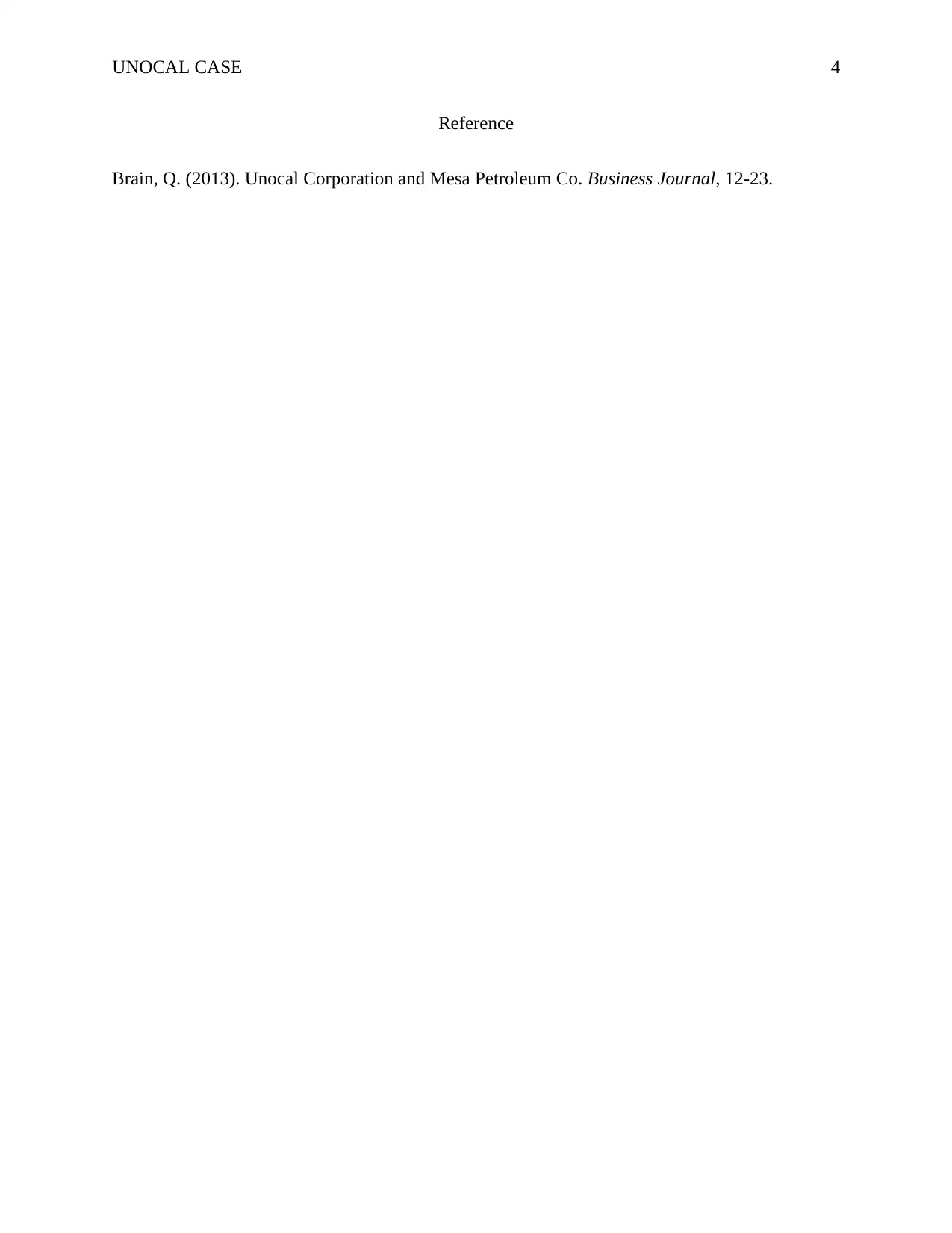Unocal Case Analysis: Shareholder Value and Financial Strategies
VerifiedAdded on 2022/08/15
|4
|641
|16
Homework Assignment
AI Summary
This document presents an analysis of the Unocal case, examining the implications of a takeover bid and subsequent exchange offers on shareholder value. The assignment addresses two key questions: Firstly, it calculates the value per share a public shareholder would receive by participating in both Pickens' tender offer and Unocal's exchange offer, detailing the residual ownership after both offers close. Secondly, it outlines a strategy to maximize shareholder value, emphasizing the importance of minimizing unnecessary expenses and increasing cash flow through regular expense report reviews and cost-cutting measures. The document further explores the rules governing exchange offers, highlighting similarities to cash tender offers. The analysis includes a breakdown of share ownership and participation in the offers, providing a comprehensive understanding of the financial outcomes for shareholders. The conclusion emphasizes the importance of strategic financial management to enhance company performance and increase shareholder value.
1 out of 4





![[object Object]](/_next/static/media/star-bottom.7253800d.svg)